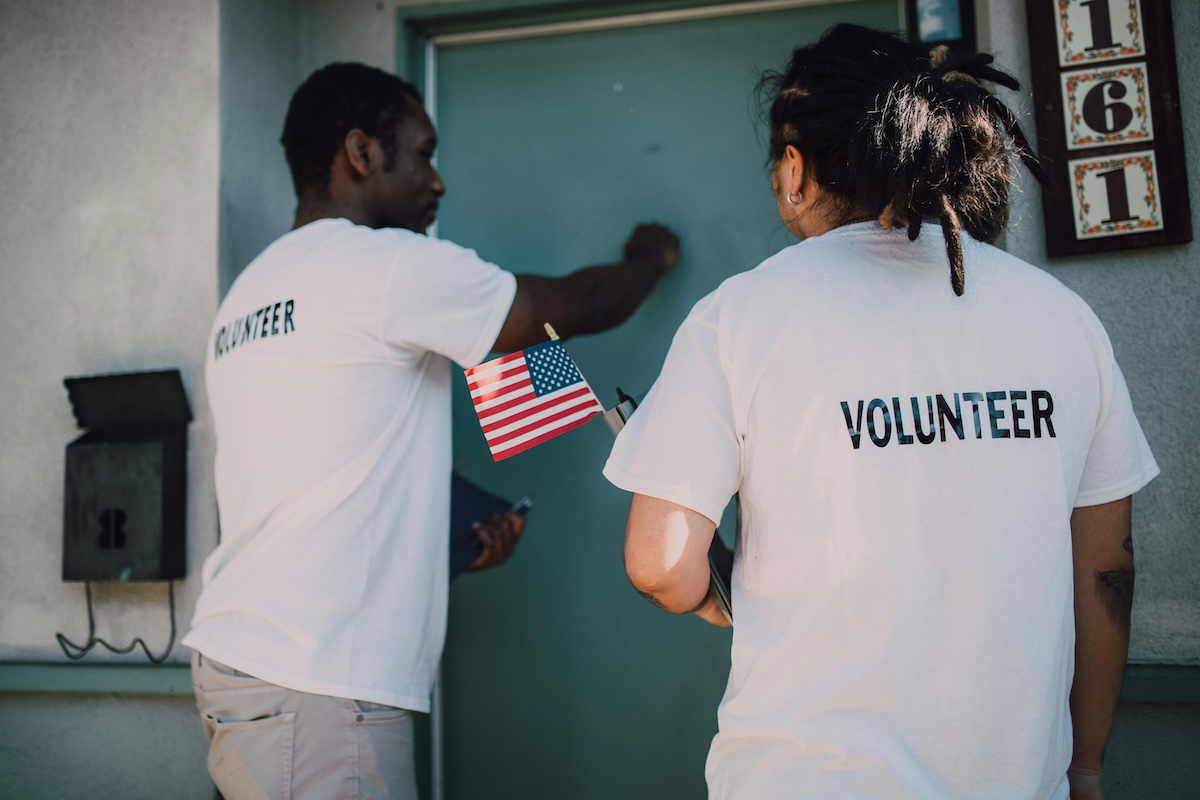In May Florida passed a law making it illegal for non-citizens to participate in signature gathering efforts as part of the state’s initiative process. Immigrant rights groups have now joined a lawsuit arguing enforcement of the law violates constitutional protections.
HB 1205 is the latest in a series of efforts by GOP lawmakers in Florida to curtail the political and civic participation of immigrants in the state.
“It is anti-democratic on its face,” says Cesar Ruiz, associate counsel at Latino Justice PRLDEF, which advocates for the legal rights of Latinos nationwide and is one of two groups representing plaintiffs in the case. “It’s consistent with what they have done in the past, trying to erode public faith in democracy and institutions, and also taking away power from the voters.”
The case revolves around a ballot initiative that seeks to expand access to Medicaid for Florida’s neediest. The state ranks 4th in the number of uninsured nationwide. The measure would lower the threshold for Medicaid eligibility to 138% of the poverty line, allowing an estimated 1.4 million additional Floridians to gain coverage. Polling shows overwhelming bi-partisan support (north of 70%) for Medicaid expansion.
Supporters, including a number of Community Based Organizations serving Black and Latino communities across Florida, have joined in the effort to gather the 900,000 signatures needed to put the measure on the 2026 ballot. But passage of HB 1205 means anyone who is not a citizen is barred from participating in the signature gathering effort.
Latino Justice and the non-profit Demos are representing the grassroots group Poder LatinX alongside two lawful permanent residents, Yivian Lopez Garcia and Humberto Orjuela Prieto, who wish to serve as petition circulators, in the case.
“HB 1205 is a blatant attack on our immigrant communities,” said Yadira Sanchez, executive director of Poder Latinx, in a statement announcing the lawsuit. “Some of the most committed organizers in our movement are Latino immigrants, and this law tells them they can’t even gather signatures to help improve their own communities.”
Still, on June 4 a federal judge ruled against plaintiffs seeking to block enforcement of HB 1205, noting they had failed to prove they were “severely burdened” by the law’s requirements.
“This is far from the final word,” said Mitch Emerson, a spokesperson with Florida Decides Healthcare, which brought the initial suit against HB 1205. Legal challenges are ongoing as groups like PoderLatinX seek to block some or all of the law’s provisions.
The law “does many awful things,” says Ruiz, adding to what is already one of the nation’s strictest amendment processes.
A previous law, SB 7050, dramatically raised the number of signatures required for an amendment to land on the ballot (almost one million), while also requiring 60% support from voters to pass rather than a simple majority. SB 7050 also made it illegal for non-citizens to participate in voter registration efforts.
HB 1205 adds new hurdles, including requiring amendment sponsors to post a $1 million bond to the state’s Department of Elections. “These proposed changes would drastically limit access to the amendment process to billionaires and corporate elite donors,” notes the ACLU, among the groups suing Florida.
But, according to Ruiz, the worst aspect of HB 1205 is that it “puts a target on the back of immigrants,” feeding into the broader anti-immigrant narrative coming out of the White House.
Florida’s elected officials “don’t want non-citizens to feel welcome in the state of Florida,” he said, “and they don’t want non-citizens to do jobs that can undergird lives for them.”
Canvassing, especially in a state like Florida, where distances are long and the heat often intense, can be a demanding job. “So this narrows the pool of individuals,” explains Ruiz, often drawing non-US citizens “attracted to this work because they want to give back, and because it provides the flexibility they need to fill gaps and cover their living expenses.”
He adds, “A blanket ban on non-citizens engaging in this type of work doesn’t serve the public interest. It is in violation of the 14th Amendment and our guarantee to equal protection under the law. And it infringes on the 1st Amendment rights of organizations to hire individuals that are part of their community and that make up a large part of their work force.”
Supporters of HB 1205 argue the law is needed to safeguard the integrity of Florida’s amendment process.
“The initiative petition process is broken, and we need to put in safeguards to protect the citizens of the state of Florida from the known fraud that we know is occurring,” Fort Myers Republican State Rep. Jenna Persons-Mulicka told reporters after its passage.
“Our constitution should not be easy to change,” said Panama City Republican, State Rep. Philip Wayne Griffitts, Jr.
But in a state where Republicans control all branches of government, the amendment process remains a singular tool for communities to shape policy that may otherwise run afoul of the state’s GOP-led agenda, says Ruiz.
In 2024 an amendment to enshrine abortion rights in Florida’s constitution fell just short (57%) of the state’s new 60% threshold. While Republicans alleged fraud in that effort, and have opened an investigation into allegations over potentially forged signatures, Ruiz says the movement’s success rattled lawmakers and prompted them to clamp down yet further.
“What we saw from the legislature is an effort to diminish the ability to access the petitioning process because it has been so effective,” he noted. HB 1205, he adds, “is an attack on the immigrant community, on direct democracy and it is blatantly unconstitutional.”





